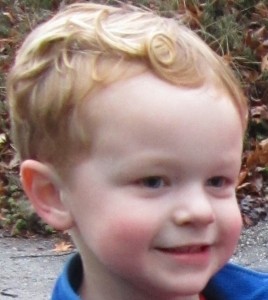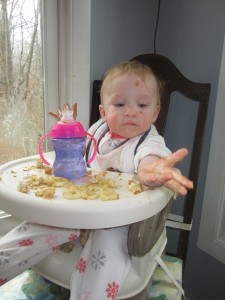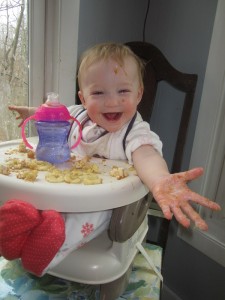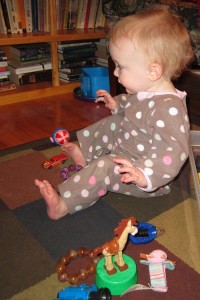 I’ve been spending lots of time on the floor lately, since much of Emerald’s world is down there. Walking past her without dipping into her play-zone for a minute is nearly impossible, which is how I end up on the floor.
I’ve been spending lots of time on the floor lately, since much of Emerald’s world is down there. Walking past her without dipping into her play-zone for a minute is nearly impossible, which is how I end up on the floor.
Today my eyes fell on a piece of white paper sticking out of a book on the low shelf behind her. Pulling it out, I recognized it as a list of Nate’s positive character qualities. I’d written it toward the end of the summer of 2009, shortly before we learned of his deadly cancer.
I can’t recall what prompted me to make the list, though I’d written similar ones at other times, wanting to appreciate my husband in fresh ways. But the interesting thing about this list was that the right hand side of the page had been torn off, and I couldn’t remember why.
Had there been a few negative characteristics written on that side? Had I felt guilty afterwards, removing that part?
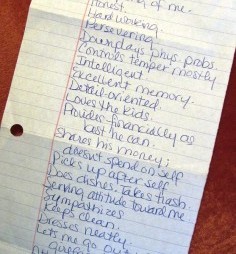 Unable to remember, I wondered what possibly could have been the value of writing down a loved one’s negatives? The only reason I can think of is to prove how few negatives there were next to a long list of positives. No matter what had been on that right side, I was glad it was no longer there.
Unable to remember, I wondered what possibly could have been the value of writing down a loved one’s negatives? The only reason I can think of is to prove how few negatives there were next to a long list of positives. No matter what had been on that right side, I was glad it was no longer there.
I don’t think I ever showed the list of positives to Nate, but I wish I had. What an opportunity it would have been to build him up and express my love. I can just see us seated at dinner discussing the latest life challenges. Then I could have said, “I want to show you something.”
While his mind was still spinning with unnumbered stresses, I could have pulled out my “Positives” list and said, “This is a description of how I see you, and no matter what happens, this is how I’ll always see you.” I can picture him studying the list, surprised and delighted, after which his spirits would have been lifted and his courage strengthened.
Dad used to quote a poem about expressing verbal appreciation to the ones we love:
If you’ve anything good to say of a man,
Don’t wait till he’s laid to rest.
For an epitaph spoken when hearts are broken
Is an empty thing at best.
Today, since I can’t give the list to Nate, I gave it to the Lord, thanking him for how Nate’s positive character qualities blessed me every single day. After that, I put it back into the book on the floor-level shelf, to find again another day.
“May you always be filled with the fruit of your salvation — the righteous character produced in your life by Jesus Christ — for this will bring much glory and praise to God.” (Philippians 1:11)

